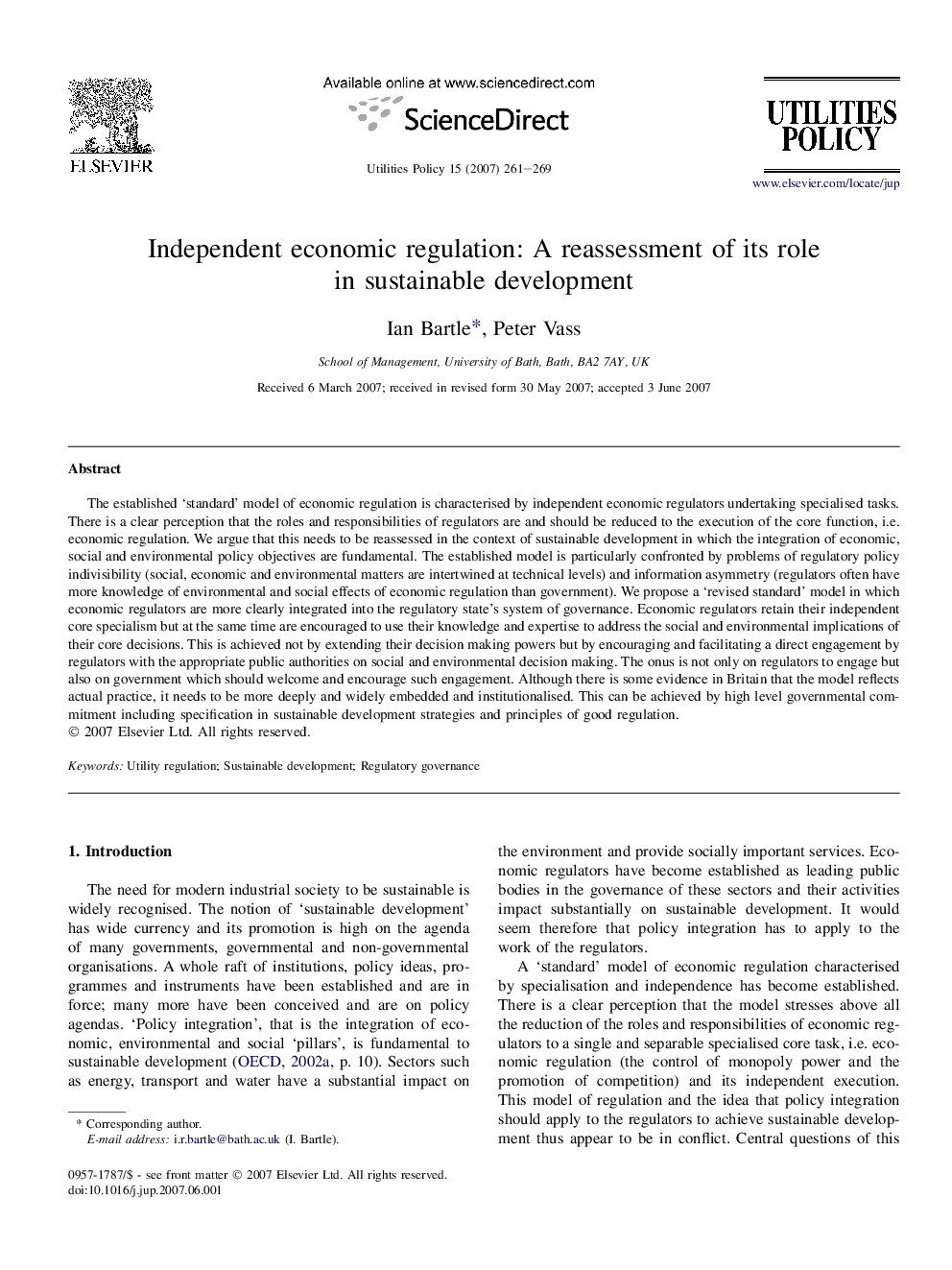| Article ID | Journal | Published Year | Pages | File Type |
|---|---|---|---|---|
| 1000361 | Utilities Policy | 2007 | 9 Pages |
The established ‘standard’ model of economic regulation is characterised by independent economic regulators undertaking specialised tasks. There is a clear perception that the roles and responsibilities of regulators are and should be reduced to the execution of the core function, i.e. economic regulation. We argue that this needs to be reassessed in the context of sustainable development in which the integration of economic, social and environmental policy objectives are fundamental. The established model is particularly confronted by problems of regulatory policy indivisibility (social, economic and environmental matters are intertwined at technical levels) and information asymmetry (regulators often have more knowledge of environmental and social effects of economic regulation than government). We propose a ‘revised standard’ model in which economic regulators are more clearly integrated into the regulatory state's system of governance. Economic regulators retain their independent core specialism but at the same time are encouraged to use their knowledge and expertise to address the social and environmental implications of their core decisions. This is achieved not by extending their decision making powers but by encouraging and facilitating a direct engagement by regulators with the appropriate public authorities on social and environmental decision making. The onus is not only on regulators to engage but also on government which should welcome and encourage such engagement. Although there is some evidence in Britain that the model reflects actual practice, it needs to be more deeply and widely embedded and institutionalised. This can be achieved by high level governmental commitment including specification in sustainable development strategies and principles of good regulation.
